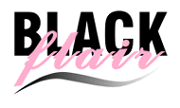|
|
|

|
Health File
|
| Sickle Cell Disease - An Introduction | ||||||||||||||||||||||||||||||
|
Sickle Cell Disease is an inherited blood disorder. It affects the red blood cells responsible for carrying oxygen to all parts of the body. Sufferers have sickle shaped red cells which are hard and inflexible instead of normal round and soft cells. These cells contain an abnormal form of haemogoblin. Sickle Cell Disease affects black people primarily, affecting people of Mediterranean origin to a lesser extent. In the UK sufferers number approximately 1 in 100 blacks of West African origin and 1 in 20 of West Indian origin. It occurs in people inheriting the abnormal sickle haemogoblin from both parents. Sickle Cell Trait occurs in people inheriting sickle haemogoblin from one parent only. Those having the trait are usually symptom free. Sickle Cell Anaemia is the most common Sickle Cell Disorder. Every day the body produces new red blood cells to replace the existing old ones. Sickle Cells are destroyed at such a pace that the body cannot keep up. The result is anaemia as the red blood cell count drops. Hence the name - Sickle Cell Anaemia. |
|||||||||||||||||||||||||||||||
|
General Symptoms Infants [after 4 months old]
|
Adolescence to Adulthood
|
||||||||||||||||||||||||||||||
|
Sickle Cell Anaemia can result in a group of devastating symptoms known collectively as a Sickle Cell Crisis. Sickle Cell Crises are episodes of pain that occur with varying frequency and severity from patient to patient. Crises are more likely to occur during periods of dehydration, strenuous exercise, infection and pregnancy.
Treatment A good diet is essential. If insufficient fruit and vegetables are being eaten, supplements of Folic Acid may be prescribed. Sickle cell Disorder sufferers should drink plenty of water (8 – 10 glasses for adults) to prevent dehydration. They should try to avoid over exertion and stress - generally reduce any activity that boost the body’s requirement for oxygen. In periods of painful crises, admittance to hospital may be necessary where pain-killing drugs may be prescribed and the patient encouraged to drink plenty of fluids. Penicillin may be prescribed to guard against septicaemia. Diagnosis Outlook Research into a cure for the disorder is on going in the areas of gene therapy and bone marrow transplants. Some Gene Therapy is focusing on the transfer of certain genes to bone marrow in an attempt to prevent the sickling process. Bone Marrow transplants are risky but if successful, offers the prospects of a virtually normal health as the red blood cells produced by the marrow will be normal. For further information contact:
|
|||||||||||||||||||||||||||||||